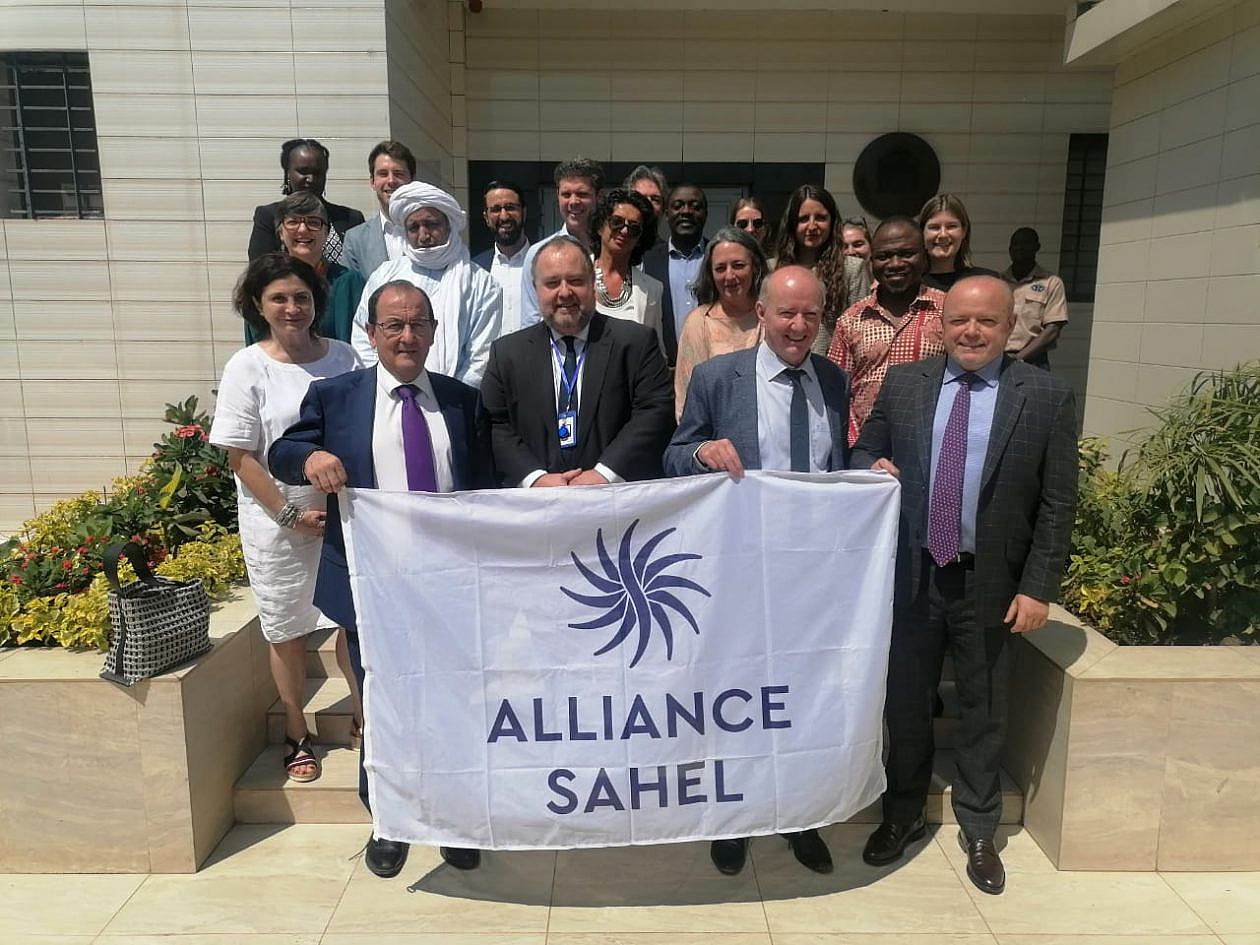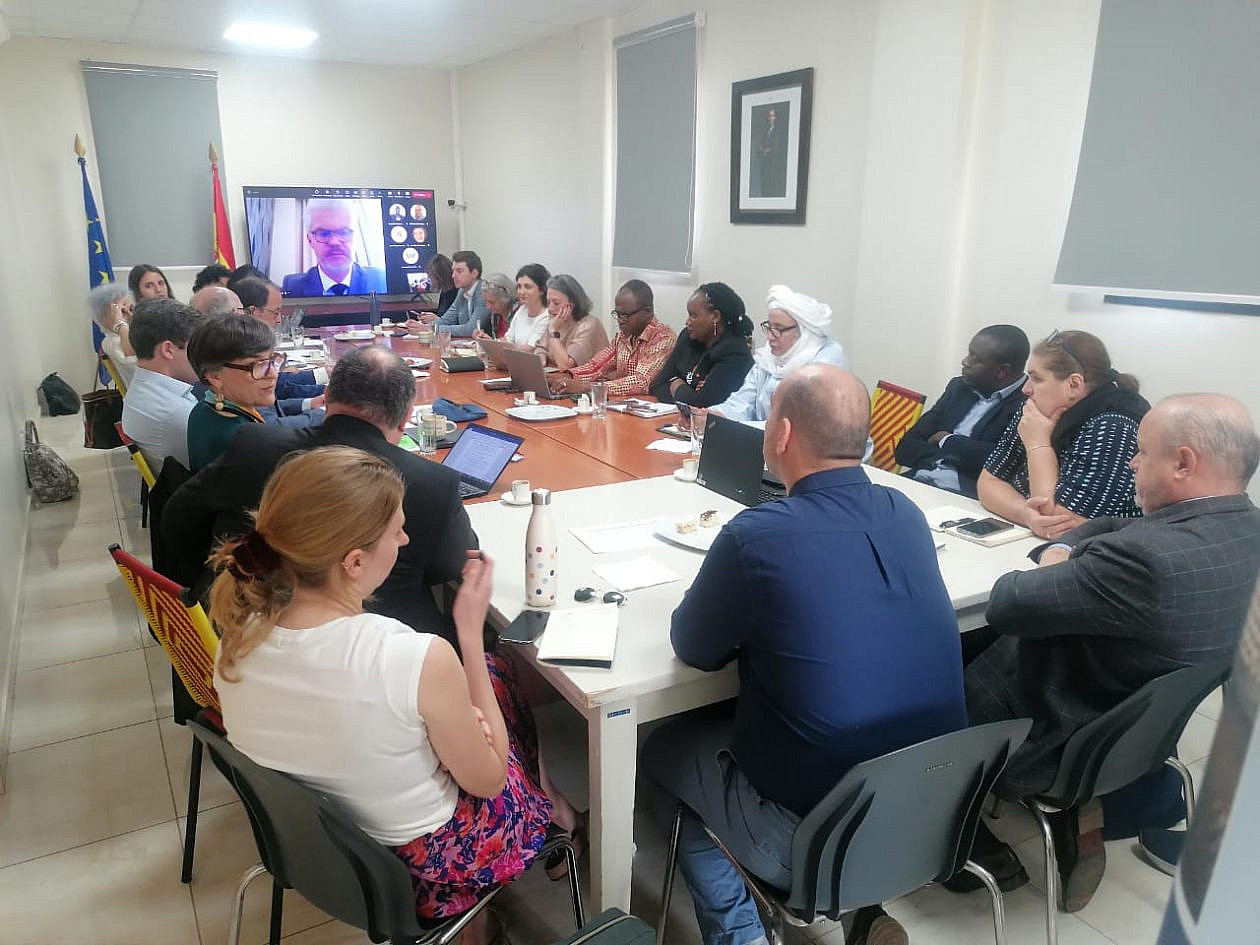Adapting programmes in crisis situations in Mali
The members of the Sahel Alliance in Mali met at a workshop co-organised by the Spanish Cooperation (AECID), the World Bank and Grmany on the 1st of February 2023 in Bamako. The aim of this meeting was to exchange good practices in terms of adapting programmes in crisis situations, to share experiences with humanitarians on security access and operating methods, and to propose concrete actions to be implemented in the southern arc of the country.
The more difficult the context, the more we have to work together.
Andreas Hartmann (Head of Cooperation, German Embassy)
In view of the deteriorating security situation in the north and centre of the country, which is increasingly spreading to the south, the ban on French-funded NGOs activities and the Malian government’s new measures to control NGOs, it is necessary to rethink and adapt programmes to the current political and security context in Mali. These recommendations can also inspire the action of Sahel Alliance members in other countries in the area, such as Burkina Faso and parts of Niger.

Around the table there were members of the Sahel Alliance who are the technical and financial partners, humanitarian actors such as the United Nations Office for the Coordination of Humanitarian Affairs (OCHA), the International Committee of the Red Cross (ICRC) and the Forum des ONGs Internationales du Mali (FONGIM) with some representations such as ACF (Action Contre la Faim) and NRC (Norwegian Refugee Council), as well as a national NGO – AMSS (Association Malienne pour la Survie au Sahel).
It is said that you cannot do development in a crisis zone, but it is also difficult to continue with humanitarian aid when the crisis persists.
El Mehdi Ag Wakini (President of the Association Malienne pour la Survie au Sahel – AMSS)

The participants discussed the modalities and margins of flexibility in a crisis situation, access management and security of beneficiary populations and teams to guarantee, in this context, the provision of basic services to the population.
Recommendations were made for better adaptation to the crisis context:
- Communicate more with national and local authorities and be transparent in reporting
- Listen to local actors on their real needs and insist on community-based approaches to provide and maintain basic services to the population
- Invest in security by increasing the analytical capacity of Alliance member institutions, and provide budget lines for risk management and security of teams and projects
- Identify and set up humanitarian/development bridges for the operational NEXUS
Advocate with members’ headquarters for administrative and legal flexibility in programming.
Stay engaged, no matter how fragile the political context.
Gaëtan Mertens (World Bank)
Concerning the actions to be implemented in the south of the country (Kayes, Koulikoro and Sikasso regions), it was highlighted the need to strengthen the social contract because a development project is not only technical.
The co-lead members on the southern arc (Spain, World Bank, Denmark) plan to engage dialogue with the local authorities of the Kayes region, to define a roadmap and to organise an activity soon in the town to present the project of a local platform to provide a range of basic services to the population.
Go further

